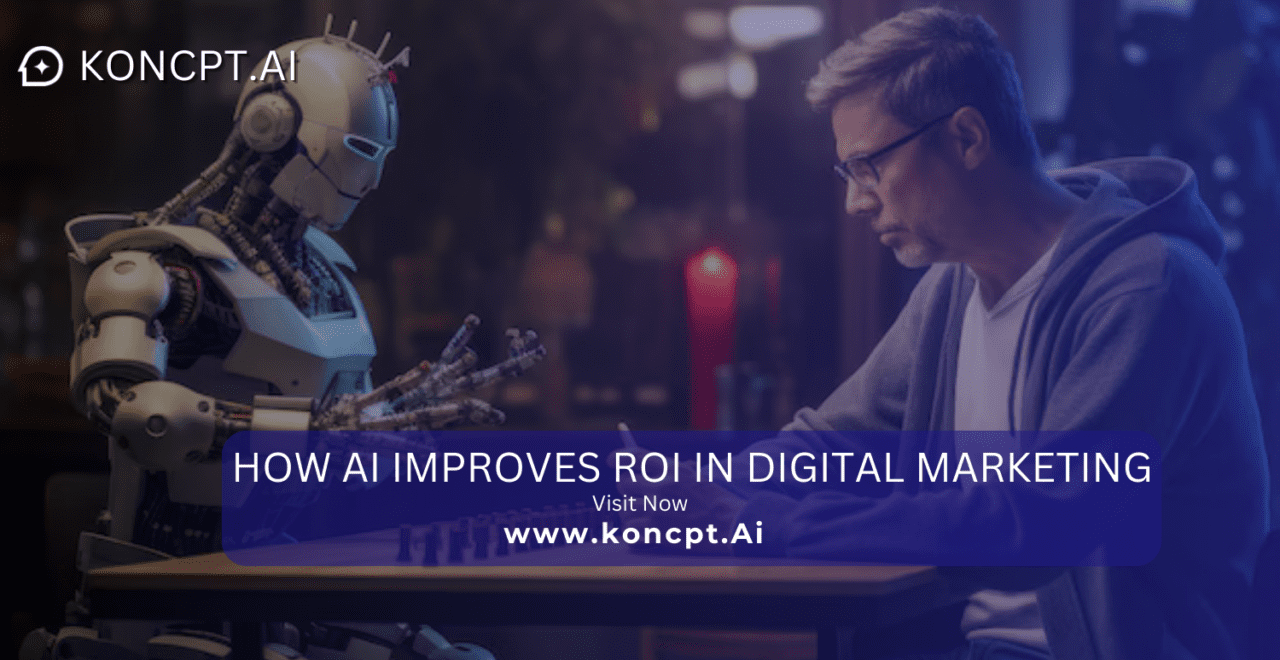How AI Improves ROI in Digital Marketing
In the competitive world of digital marketing, businesses constantly seek ways to maximize return on investment (ROI). With evolving customer behaviors and growing data volumes, traditional marketing strategies are no longer sufficient. Enter artificial intelligence (AI)—a transformative technology that is revolutionizing how marketers optimize campaigns, engage audiences, and drive higher ROI. Here’s how AI is reshaping digital marketing and delivering measurable business outcomes.
1. Enhanced Customer Targeting
AI empowers marketers to understand their audience better than ever before. By analyzing vast amounts of data, AI identifies customer preferences, behaviors, and purchasing patterns. This enables hyper-personalized targeting, ensuring that marketing messages reach the right audience at the right time.
For example, AI-driven tools like Google Ads’ Smart Bidding use predictive analytics to identify high-intent users and adjust bids accordingly. This precision targeting reduces ad spend on uninterested audiences, maximizing the ROI of each campaign.
2. Personalization at Scale
One-size-fits-all marketing is a thing of the past. AI enables businesses to create personalized experiences for each customer, from tailored email campaigns to dynamic website content. Platforms like Dynamic Yield and Optimove use AI to deliver content, product recommendations, and offers based on individual user behavior.
This level of personalization not only increases engagement but also improves conversion rates, driving higher revenue without increasing marketing costs.
3. Efficient Content Creation and Optimization
Content remains king, but producing high-quality, engaging content can be resource-intensive. AI tools like Jasper and ChatGPT streamline content creation, generating blogs, ad copy, and social media posts quickly and efficiently. Additionally, AI-powered platforms like Grammarly and Clearscope optimize content for clarity, tone, and SEO, ensuring better performance across digital channels.
By automating repetitive tasks and improving content quality, AI allows marketers to focus on strategy while achieving better ROI.
4. Predictive Analytics for Smarter Campaigns
AI-driven predictive analytics provides marketers with valuable insights into future trends and customer behaviors. By analyzing historical data, AI tools forecast campaign performance, allowing marketers to allocate budgets more effectively. Tools like Adobe Analytics and IBM Watson Marketing enable businesses to identify high-performing channels and optimize campaigns in real time.
5. Automation of Repetitive Tasks
AI automates time-consuming marketing tasks such as email segmentation, lead nurturing, and ad placement. Platforms like HubSpot and Marketo use AI to streamline workflows, ensuring campaigns run efficiently and effectively. This reduces labor costs and accelerates campaign execution, improving ROI.
6. Real-Time Performance Tracking
AI provides real-time insights into campaign performance, enabling marketers to make data-driven decisions. Dashboards powered by AI offer actionable metrics, identifying what’s working and what isn’t. This agility allows businesses to optimize campaigns on the fly, reducing wasted spend and enhancing overall ROI.
Conclusion
AI is no longer a luxury in digital marketing—it’s a necessity. By enhancing targeting, personalization, content creation, and campaign optimization, AI empowers businesses to achieve more with less. Marketers who embrace AI tools and strategies are well-positioned to drive significant ROI, stay ahead of competitors, and build stronger customer relationships. As AI continues to evolve, its potential to transform digital marketing and maximize ROI is limitless.



